In previous parts we looked at clothing as well as food- and drink-related items you will want with you when you hitchhike. Today we'll look at the other useful items and tools to make your hitchhiking trip much more convenient and successful.
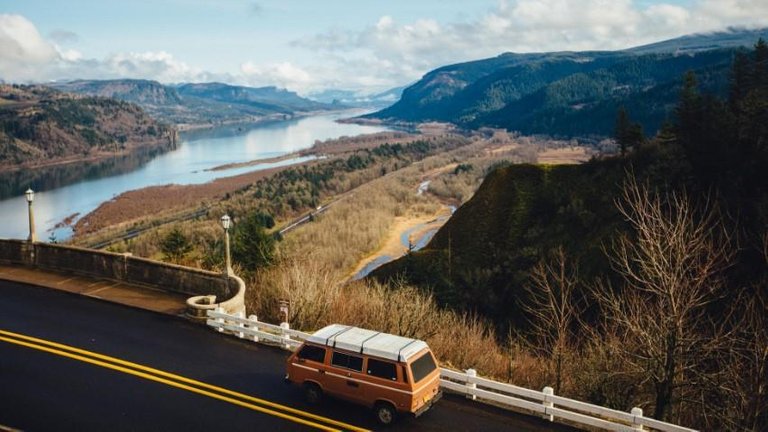
Signs & markers
In all likelihood, more than anything you will want a sign with you. You know, those cheesy cardboard signs hitchhikers are holding when trying to get a ride. There are several good reasons for having a good sign with you:
- They really do work ;)
- It shows you are putting some effort into your journey. While simple letter-signs work well, you can put some creativity into them and make people see that you care, even when they are still far off and barely able to see you standing there alongside the road. There are hitchhikers who literally spend an hour on a single sign, sketching in all sorts of detail, butterflies and shading of the letters. Why not? After all: You got the time ;)
- Since signs can be designed in different ways, it can communicate a lot about you from the get-go in one glance from a distance. Make use of it and draw more resonant drivers to you.
- 'Merely' holding out your thumb will not tell passing drivers where it is you want to go and will hence make it difficult for them to gauge within a moment's notice how much "burden" they will take on by picking you up. They can always rationalize not picking you up by saying to themselves later: "Oh well, he probably wanted to go a different city than I am going to", or something along those lines.
Be unambiguous (as clear as you can) and you will find that drivers respond best if you have an identifiable (nearby) target where they can help you get to as their "contribution" to your journey. More about this in the later "process" chapters of this series.

So, what do you need for a good sign?
Basically you want a few permanent markers with you, ideally a black one for outlines and contrast, and optionally some colored ones for better effect and more "heart" in details. Since these markers don't weigh anything it's a good idea to bring 2-5 markers with you and just throw them into your backpack somewhere. Apart from drawing signs they can also come in handy on longer journeys in all sorts of unexpected ways.
You will also need a piece of cardboard or a carton of some kind. Don't worry too much about making all the various signs you will need for different legs of the journey before you depart - you can always stock up on cardboard along the way by kindly asking the people who work at gas stations if they have some throw-out cartons laying around or just go and glimpse through their paper dumpsters (without asking them beforehand, they will most likely not allow it so there is no need to ask permission first).
I suggest you take one or two empty cardboard pieces with you when you start and go from there - pieces large enough to fit the name of the next major city along your chosen direction in large, readable letters. Also remember that you can and should use both sides of each sign, so two pieces of cardboard will effectively get you 4 target destinations which can bring you rather far in a day.
To make things easy on you, I recommend writing your first sign the night before your journey to have it ready in the morning when you start. There is nothing quite like waking up seeing your own happy hitchhiking sign on your first day, being greeted by your... commitment to this cosmic undertaking. Make sure the thing is plainly visible and easily readable from afar by using contrast and you are well set!
It can also work if you write the designation of the highway onto your sign, in combination with the cardinal direction. In some countries this will work well, in others it may be better to just use the name of the city along that route, as a general highway designation doesn't tell potential drivers how far you want to travel along that route, and it can also feel less... "meaningful" to pick someone up who has written the name of a highway rather than "my famous lovely home town I am proud to help a hitchhiking tourist get to". Commuters will love to take you to their hometown if they're going there anyway and might be happy to share their love for the town with you proudly. They may also have great suggestions and local pieces of advice for you should you decide to stay for a night there.
At the end of the day, writing down the major cities' names along your route will simply increase your chances.
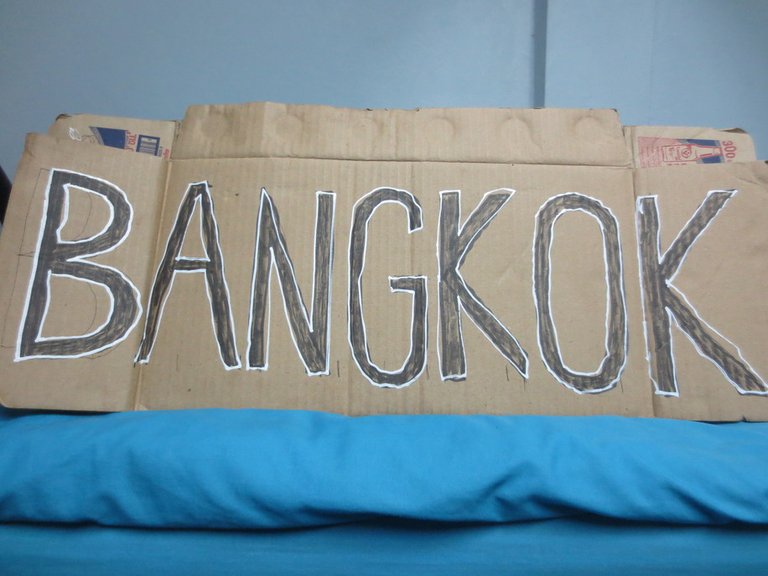
Phone map & basic orientation
The age of smartphones has made it incredibly convenient to get your basic bearings no matter where you are. While many hitchhikers I know get their concrete route information from the drivers themselves, I can totally recommend putting some kind of offline roadmap onto your phone if you have a smartphone at all. There are all kinds of different streetmap apps and services, and if you plan on hitchhiking it's a good idea to keep a lookout for sales and rebate deals as these apps regularly get sold at a giant discount and can bring you amazing benefits in countries and areas you have never been to. Not only for navigation but also for finding shops, hostels etc.
There's no single app I can recommend but I hear many good products exist out there. If you have a favorite please feel free to put it in the comments.
Internet connectivity may also help greatly along your journey but offline streetmaps are definitely a great asset to have with you regardless of where you are out there!

Having streetmaps with you in this way can greatly help you go the right direction, might prevent you from going "too far" along certain roads into hitchhikers' dead ends and can overall be very reassuring to have, as you will have a better sense of your progress and direction and can avoid rude awakenings when you figure out that some mixup in the names of places has occurred along the way. As these things go, sometimes there can be two cities with the same name in the same country and I have met people who only found out at "the end" of their journey that they have mistakenly travelled to the wrong city on the wrong end of the country. Whoops!
These maps can be especially helpful when you find yourself in hitchhiker's no-man's land or when you have to walk distances to get to a better pickup spot. Sure, people can always help you navigate a foreign country but language barriers as well as misunderstandings can make it tricky to actually walk their advised path with certainty.
If pertinent to the area, you could also just take dad's old map in paper format, but it can be clumsy and you have to keep in mind that many roads and routes have changed since its printing days.
If you don't have any kind of map with you it's a good idea to simply ask your current driver for the best way to continue, as well as people at gas stations who will be happy to help you out with some navigational knowledge by looking things up for you. You can also take a look at the area's roadways the day before you travel, jotting down the major road designations in a sketch on a piece of paper. Clumsy, but it can be really helpful to show to drivers figuring out at what spot you should continue.
A great online-alternative to having offroad-maps is the site openstreetmap.org where you have free access to all of Earth's roadways including their traffic-related designations. If you have online access on your phone you can easily get your bearings there.

Pro-tip: If you neither have internet nor offline maps with you on your phone, be on the lookout for McDonald's and similar establishments along the way. They always offer free wifi, allow you to warm up a bit and are regularly scattered literally anywhere you could go.
Even if you protest their business or "food options" they sure are a welcome ally for any hitchhiker out there, so make good use of them and their infrastructure. They also have bathrooms which have saved me more than once along my journeys, allowing you to "wash" and go to the toilet, as well as stack up on some tissues or refill your water bottle.
Thank god for globalization, right? ;)

Bathroom utensiles
It may totally depend on your habits, but a few toiletry items are rather essential on long road trips. You will want a toothbrush with you, believe me. As well as some non-flouride toothpaste of some kind.
For washing and the like I find it easiest to simply bring a bar of soap with me on the road. It can be used for showering as well as washing your hands and clothes when all your socks are smelly.
Also, do not underestimate the importance of chap sticks on long journeys. Bringing at least one with me has really made my life easier, as dry lips can easily come about from being out so much and there have been a few trips where I wished I simply would have brought a tiny chap stick with me to greatly increase my sense of well-being.
A small towel will be enough but can be rather handy as well - no need to bring a large one as it takes up a good chunk of your luggage space. Towels can also nicely double up as a sort of pillow on the road.
Lastly any toiletry items you need and can't do without have to come with you, please just make sure you go light on them and don't pack too much.
Some people never go on hitchhiking trips without adequate sun protection - hats, (toxic) chemical sunscreen or simply some high-grade coconut oil. The latter can also be used for brushing your teeth, oiling your lips, "thickening" up your coffee or simply for its nutritional value. As hitchhikers we do love multi-purpose items that save space & luggage weight and can make us feel like clever inventors using them for different things at once. There's nothing quite like hacking physicality in a clever manner ;)
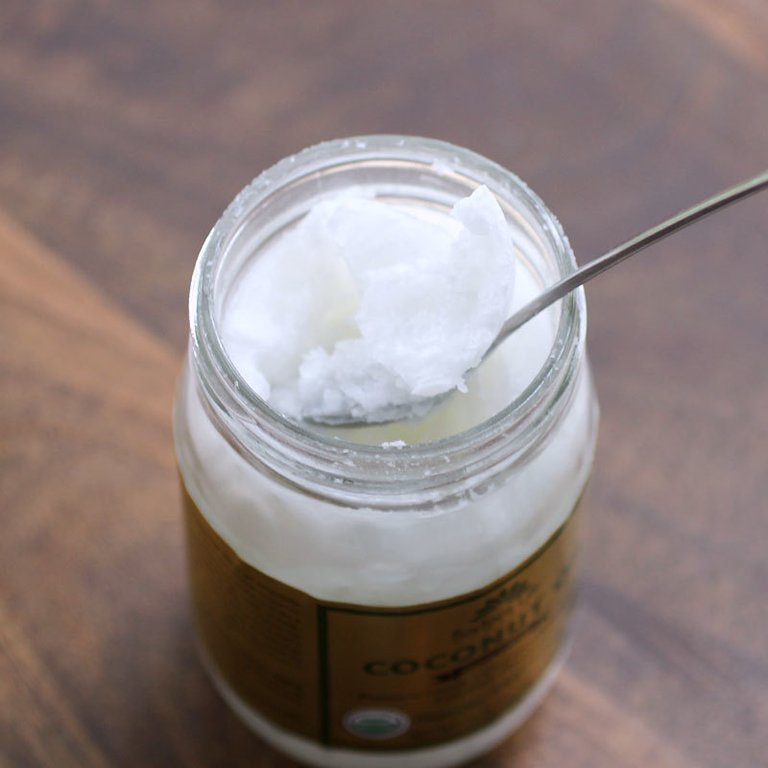
First aid
"First aid" simply means to pack a few bandaids and some sort of disinfectant to do wonders for your spirit on the road. I usually make sure I either have some lemon juice or very hot chili powder with me in a tiny plastic container which are great assets for sanitizing any wounds you might incur on your journey (and can greatly help you out if you ever want some spice in your food as well;)
Bringing a first aid kit is rather ridiculous but having some sort of minimal medical emergency supplies with you is a good idea, if only to be able to shield an open wound or to give your mind some sort of peace by disinfecting a wound rather than worrying that it might get infected. Put that chili powder on there, feel it burn and know you'll be alright. You could also pack high-grade alcohol in a small bottle.
Drivers will usually be of help to you with any medical issues you may have along the journey. Naturally, if you are dependant on any other sort of medical item or drug you may want to pack that as well.
Another thing I can recommend is bringing a few charcoal tablets. They can do wonders for an upset stomach and will help you retain more water if you ever get a diarrhea attack for whatever reason.
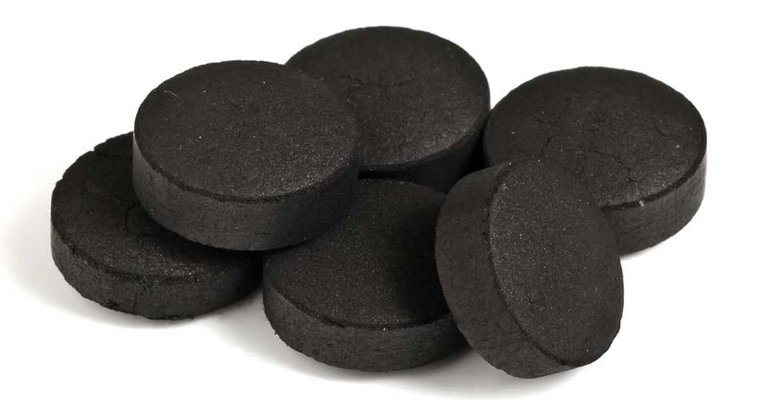
Though not strictly medical I also want to include earplugs here. It depends entirely on your way of sleeping but I find having some earplugs with me on the road to be immensely helpful. Especially if I need some sleep but am forced to do so in a loud or busy environment. Earplugs will also help you get better sleep if you have to spend a night near the road or highway you are travelling on.
In terms of medicine: If you really want to be well-prepped like a hippie-pro you will take MMS with you on the road. The one and only. To put it in a nutshell: MMS is somewhat of a secret "weapon" for fighting off germs, diseases and infections that is widely available and easy to travel with.
There are major benefits to having MMS with you:
- You will feel more prepared to deal with sickness of all sorts
- You can alleviate a lot of suffering and hold-up on your journey by using MMS in time.
- You will only need two small bottles with you to make use of it.
If you are not familiar I highly suggest you explore the topic on your own, I will probably write about my experiences in the future. A good introduction can be found here.
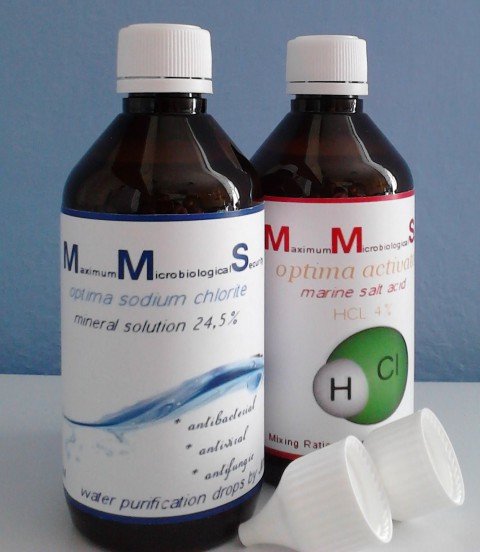
Another good idea is to have some kind of insect protection, especially against ticks and mosquitos. Again, there are many commercial products that promise to work, however I have found Teatree and Nigella oils to work well, or (better yet) Amoskan oil which works to a degree unparalleled by commercial products out there. Amoskan is a mosquito oil recipe made from several natural oils without any chemical additives and it works pure wonders compared to chemical products I have used.
While we're at ticks - I have reason to believe that the narrative about catching lime's disease through tick bites is heavily skewed and overrated (more on that some other time). That said, you will probably want to pack a tick-removal tool before you depart on your journey. They are inexpensive, small and useful little tweezers that allow you to remove ticks quickly and cleanly and will thus take your worries away massively. It's quite an unsettling experience after a tick has bitten you and - since you don't have any removal tool with you and are out in the middle of nowhere - you will have to carry the damn thing for days until you meet someone who can help you remove it.
Again: Prevention is better than repair. Make use of natural oils like Amoskan if you happen to pass through grassy areas, check your legs and skin regularly and have that tick removal tool with you and you will be fine.
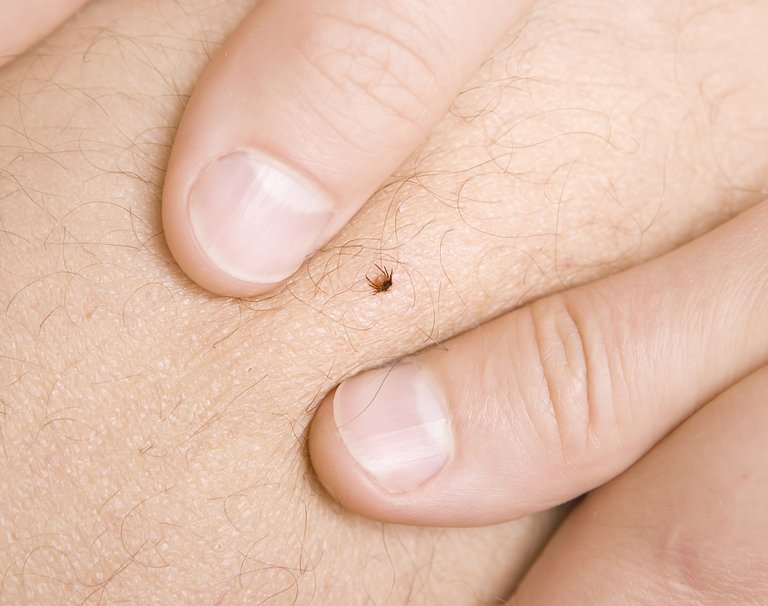
Other stuff
Depending on the season and area you may want a pair of sunglasses with you since you will be out all day.
Another thing that came in handy rather often are garbage bags!
You may laugh but having a few rolled up garbage bags with you is a great idea. Not only do they allow you to separate items from each other within the chaos zone that is your backpack (like dirty clothing from fresh clothing) but garbage bags can be a great last resort when things are wet. You can also go full-on garbage bag mode and simply make a whole freakin' raincoat of sorts, in case you missed the "clothing & apparel" section of this series ;)

Not only can you pack your backpack into one of these garbage bags to keep it dry, you could also put your shoes in them, even if you are still wearing them. More than once have I resorted to putting garbage bags on my feet during hard rain nights on festivals and the road. It looks ridiculous but shields your shoes against water.
A flashlight is also a good idea, especially if you are camping along the way, even a small one may save you more than once. Any small flashlight will do, I always carry two for sheer convenience in camping life.
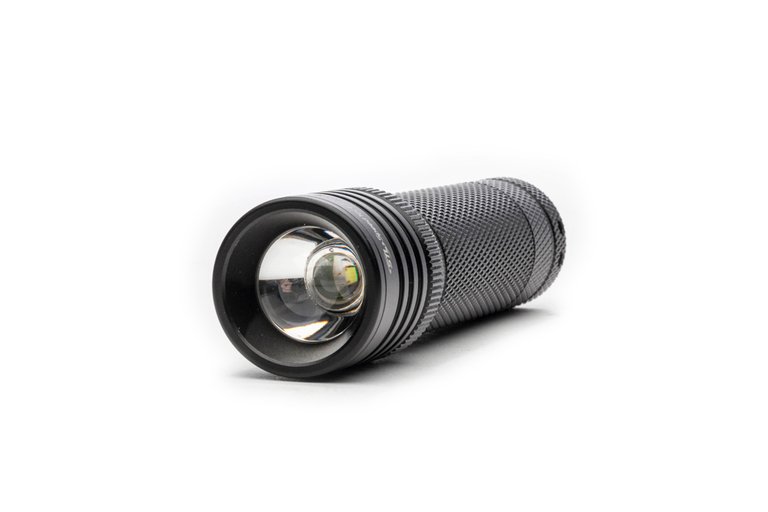
I know it may sound like a lot of stuff, but most of this is fairly lightweight and will come in rather handy along your journey.
I may add items that I didn't think of to this article later. If you can think of any that are essential please feel free to drop me a comment and I'll include them.

Part 1 | Preparation - Tackling Fears & Hugging The Unexpected
Part 2 | Preparation - Time, Distance & Availability
Part 3 | Preparation - Clothing & Apparel
Part 4 | Preparation - Food & Drink
blogs.cornell.edu
rackcdn.com
igeeksblog.com
openstreetmap.org
unsplash.com
huffingtonpost.com
trustdentalcare.com
oxiclub.sk
aiderm.com
instructables.com
speedtechlights.com
unsplash.com
Thanks for using eSteem!
Your post has been voted as a part of eSteem encouragement program. Keep up the good work! Install Android, iOS Mobile app or Windows, Mac, Linux Surfer app, if you haven't already!
Learn more: https://esteem.app Join our discord: https://discord.gg/8eHupPq
Hello, as a member of @steemdunk you have received a free courtesy boost! Steemdunk is an automated curation platform that is easy to use and built for the community. Join us at https://steemdunk.xyz
Upvote this comment to support the bot and increase your future rewards!